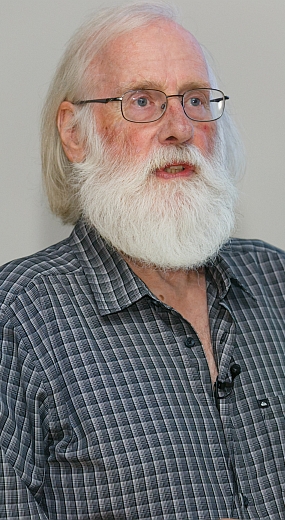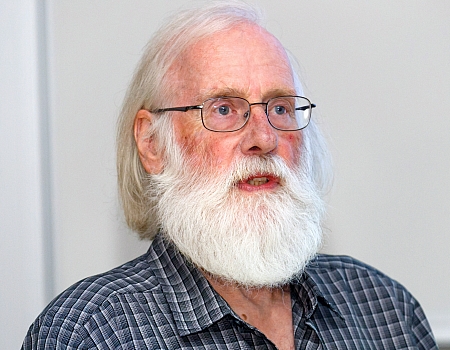

Prof. Tony HUNTER
The Salk Institute for Biological Studies
Prof. Tony HUNTER
The Salk Institute for Biological Studies
Research Areas:
Cell growth control, growth factor receptors and their signal transduction pathways
Prof. Tony Hunter received his PhD in Biochemistry from University of Cambridge in 1969 for his work on mammalian protein synthesis. He was a Research Fellow in the Department and a Postdoctoral Fellow at the Salk Institute for Biological Studies working on polyoma virus DNA replication. He rejoined the Salk Institute as an Assistant Professor in 1975 in the Molecular and Cell Biology Laboratory. He is currently the Renato Dulbecco Chair in Cancer Research, Director of the US National Cancer Institute-designated Salk Institute Cancer Center, and an American Cancer Society Professor in the Molecular and Cell Biology Laboratory at the Salk Institute for Biological Studies. He is also an Adjunct Professor in the Division of Biological Sciences at the University of California, San Diego.
In 1979, Prof. Hunter discovered that polyomavirus middle T antigen and the RSV v-Src oncoprotein both exhibit a previously unknown protein kinase activity that phosphorylates tyrosine. He has spent most of the last thirty years studying protein kinases and phosphatases, and the role of protein phosphorylation in cell growth, the cell cycle, and cancer. He received numerous awards for his work on tyrosine phosphorylation. His current efforts are aimed at elucidating how post-translational modification of proteins by phosphorylation, ubiquitylation, and sumoylation is used to regulate cell proliferation and cell cycle checkpoint activation in response to DNA damage.
Prof. Hunter is a Fellow of the UK Royal Society, an EMBO Associate Member of Excellence in the Life Sciences, a Member of the US National Academy of Sciences, the Institute of Medicine, and the American Philosophical Society, and a Fellow of the American Academy of Arts and Sciences and of the American Association for Cancer Research. To recognize his significant discovery towards cancer research, he was awarded the Royal Medal in Biological Sciences (2014), the Sjöberg Prize for Cancer Research (2017), the Pezcoller Foundation-AACR International Award for Extraordinary Achievement in Cancer Research (2018), the Tang Prize in Biopharmaceutical Science (2018), the US National Cancer Institute Outstanding Investigator Award (2019) and the AACR Award for Lifetime Achievement in Cancer Research (2022).


